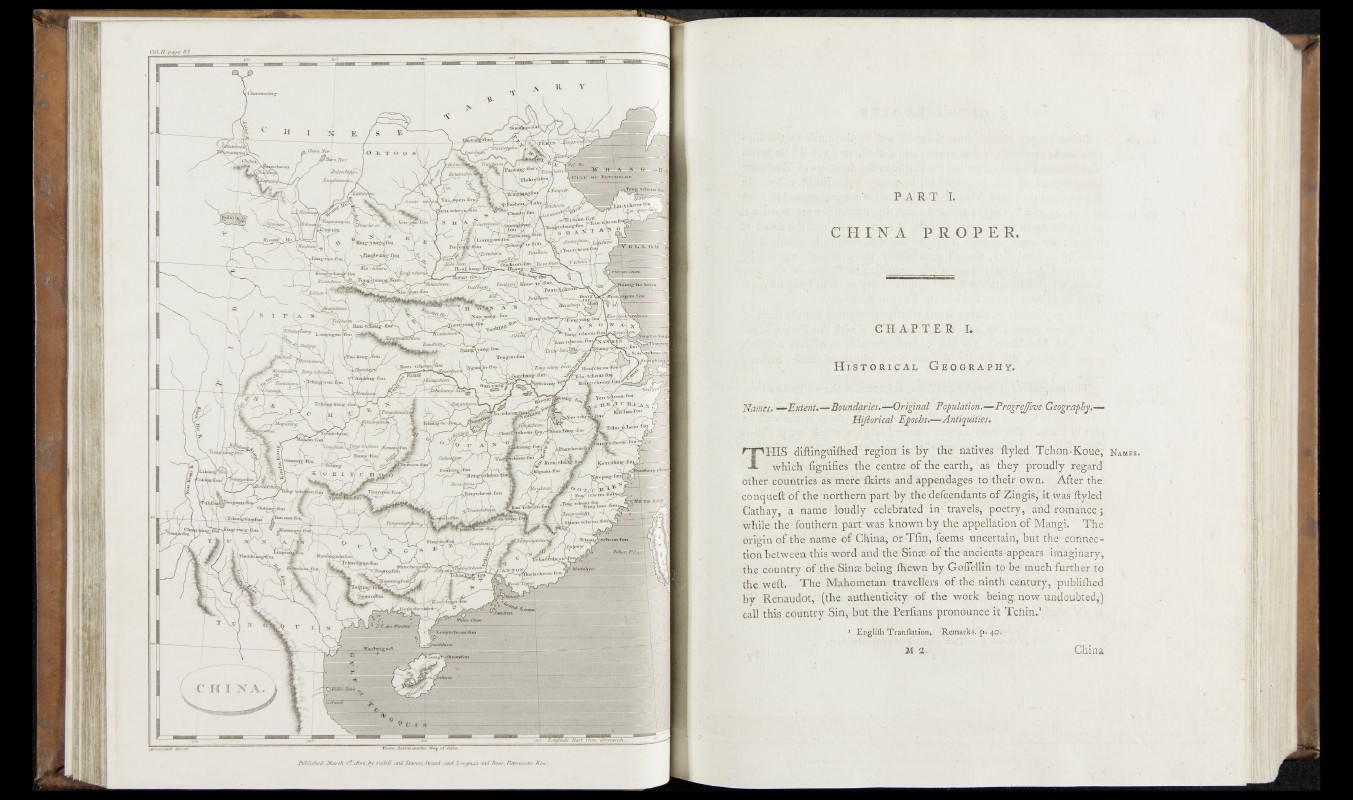
2fiAghùwu£ iXiin/’iiVi
* » 0
W1inp--to-so lïùiptchemtf\
Aox-tâ>eo*^
Ljdfen. Y-tctecùl
Boai-lâmr:
'oruf-tttgnen,
Jlàuuh&ru, i
Vum/urn ■ /.//y//'»/W/c/f.V «45
P A R T I,
C H I N A P R O P E R .
e:n a p t e r L ;
H Ï s t ô r içtàl G e o g r a p h'y .
Namsi^Etdent.^Bounddries.—Original Fopulation.-^-ProgreJJive Geography.-**
• Mtftqrical Epochs.—Antiquitiesi
THIS diftinguiftied ’ region is- by' the natives ftyJedTchtiniKoue,' Names.
which fignifies* the 'ctotre of tHe earth',as ’ they ’ proudly regard?
other countries as? mere fkirts- and appendages- to'their own." After the5
•cOnqueft of the northern "part by the-defceh'dants of Zingisj it was'ftylecf„
Gath ay,' a .name Mildly1 cMebfated' in-'tfave’Is,1 “pbfefisy, and'^nll.’nc#^8
«while the- fouthem. part was known-by the appellation oPM'ahgk*'-
origin of the name of China, Or Tfirr, f$ems uncertain, hut thel^p'nnec-
tioh between? this word-and the Sinae*-of the anciertts>appears -itii^.inary,
the c o u n tr y of the Sins being fhewn byGoflellih^tp-hei much further'-to
the wtfft. The Mahometan- travellers of theninth!century, spiibliflied
by Renaudo't^t(the authenticity of the work- bein^; now' undoubted#.),
call this country-Sin,» bufc'the, Berfians pronounce' it Ulchia.*^ u
1 Englilh Tran flat ion. Remarks, p. 40.' P
M 2'- China